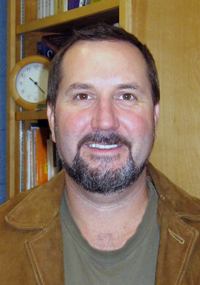Gates-funded study will use TV messages, in-home nurse visits
February 26, 2010

Ed Frongillo

James Thrasher
Arnold School of Public Health researchers are seeking to improve the feeding of infants and young children in Morelos, Mexico, with a study that uses television messages and in-home visits by nurses.
The study is supported by $99,905 grant from Alive & Thrive (A&T), a large-scale initiative funded by the Bill and Melinda Gates Foundation, said Dr. Edward Frongillo, chair of the Department of Health Promotion, Education, and Behavior.
The study will target families in the semi-urban communities near Cuernavaca, a city of about 350,000 inhabitants some 53 miles southwest of Mexico City.
Frongillo says feeding practices, many shaped by culture and particular beliefs, are a key determinant of under-nutrition and overweight in young children. The practices, however, also are amenable to change.
The project, “Partnering with media and vaccination program to improve infant and young child feeding” will test the effectiveness of the TV messages and nurses’ visits in improving the way young Mexican children are fed with regard to dietary diversity, consistency, responsive feeding, and age-appropriate amounts.
The nurses will deliver age-appropriate messages during the first National Vaccination Week in February 2011. At the same time, a popular morning television show will echo the same themes.
The Mexico National Institute of Public Health is collaborating in the study, said Frongillo, who also serves on the A&T’s technical advisory group.

Street scene in vicinity of USC study.
Dr. James Thrasher in the Arnold School is a co-investigator, as is Eva Monterrosa, a doctoral student at Cornell University whose dissertation research provided background for the study.
The Mexico study is supported by a small grants program of Alive & Thrive, a five-year initiative to improve infant and young child nutrition by increasing rates of exclusive breastfeeding and improving complementary feeding practices.
Children and families in Bangladesh, Ethiopia, and Vietnam are the primary focus of A&T which aims to reach more than 16 million children under age two.
Frongillo said an Arnold School doctoral candidate, Rasmi Avula, is currently doing her dissertation research, working with the A&T team in Bangladesh. Another doctoral student, Lan Ngoc Hoang, will do her dissertation research with A&T starting this summer in Vietnam.
For more information, visit the Alive and Thrive website.



_01.jpg)
_02.jpg)